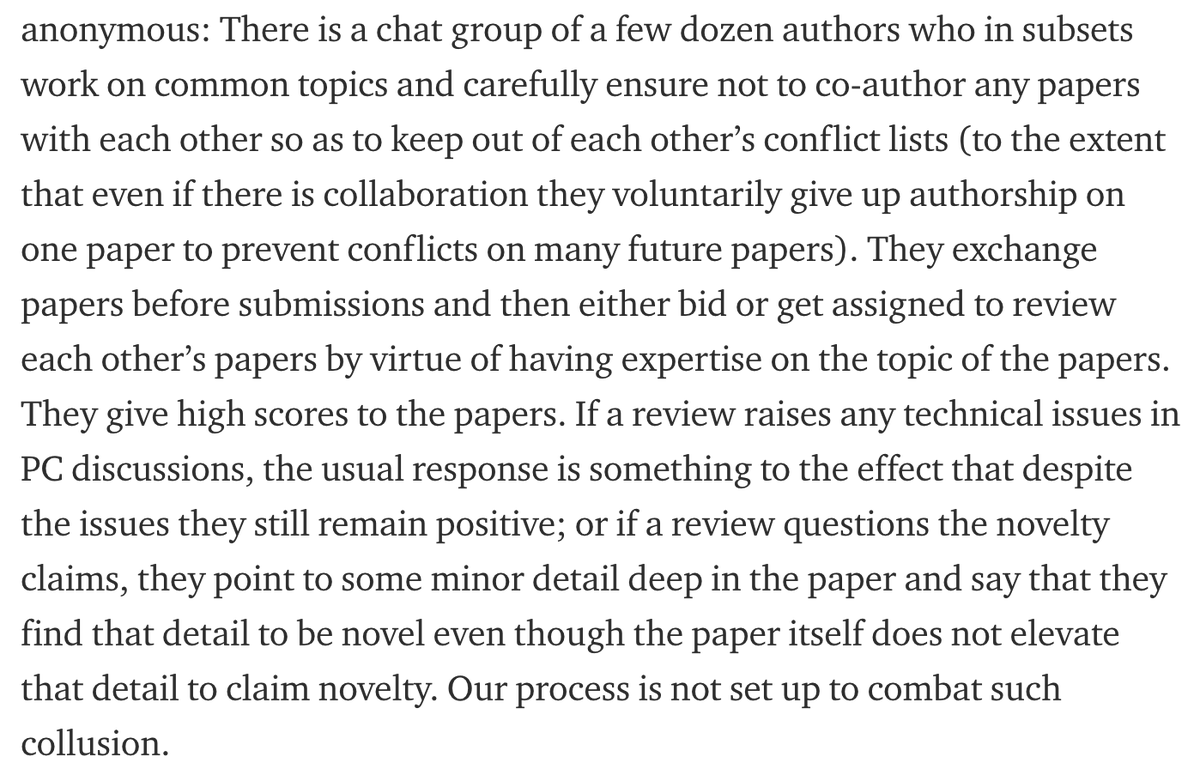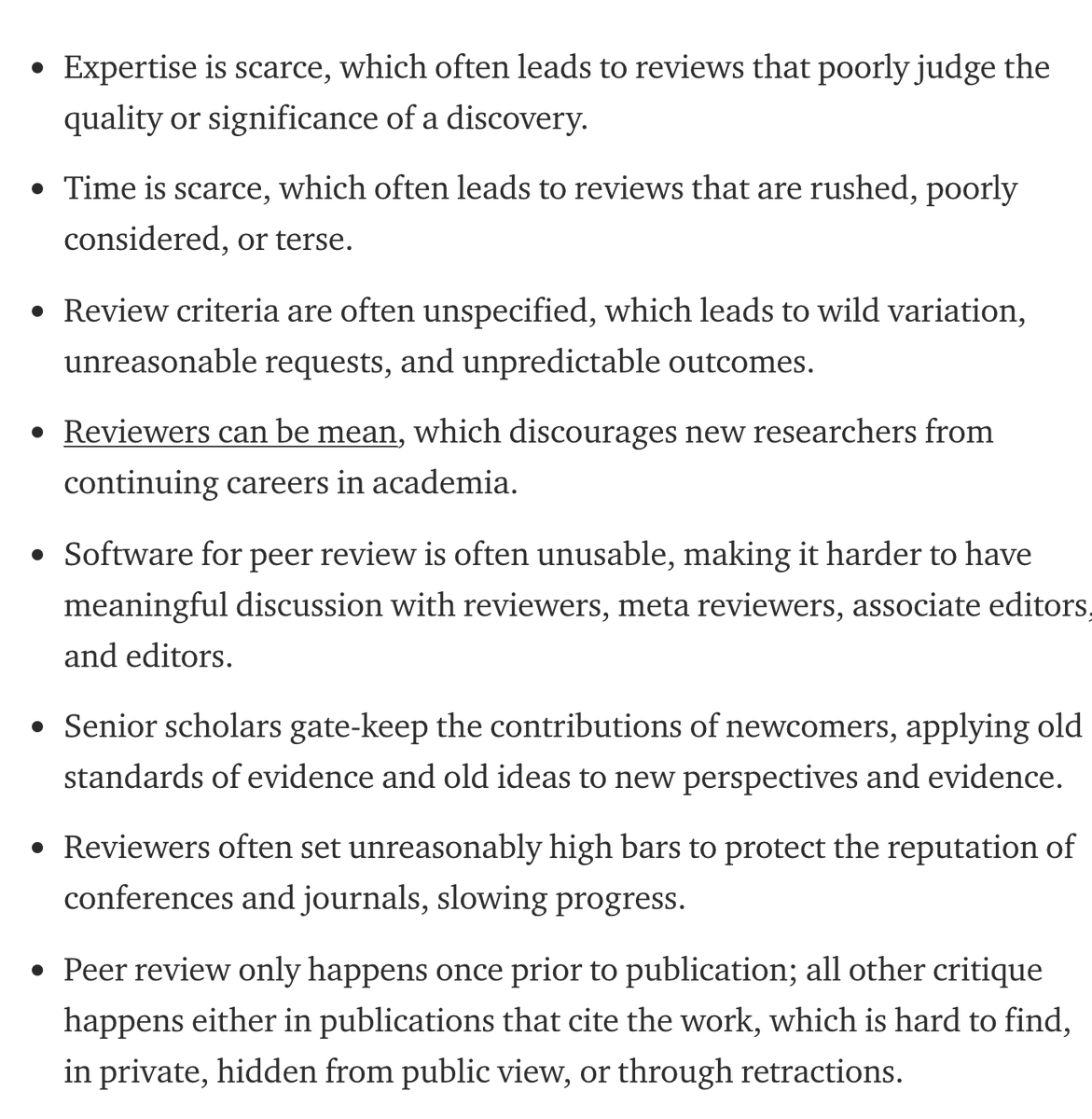Starting with: "Our process is not set up to combat such collusion" and then meandering to academic integrity, ethics, open science, volunteer labor, and whatever else comes up. medium.com/@tnvijayk/pote…

- aren't colluding with each other to boost their reviews
- aren't asking authors to cite their papers solely to boost their own citations
- aren't tanking papers for self-interested reasons (e.g., not wanting to be scooped)

(1) incentives for good reviewing
(2) consequences for bad reviewing
(3) training/scaffolding for reviewing
Harder wish list:
(1) more open processes that don't rely on small "in groups" of reviewers
(2) more transparency for reviews
(3) everyone have integrity ❤️



